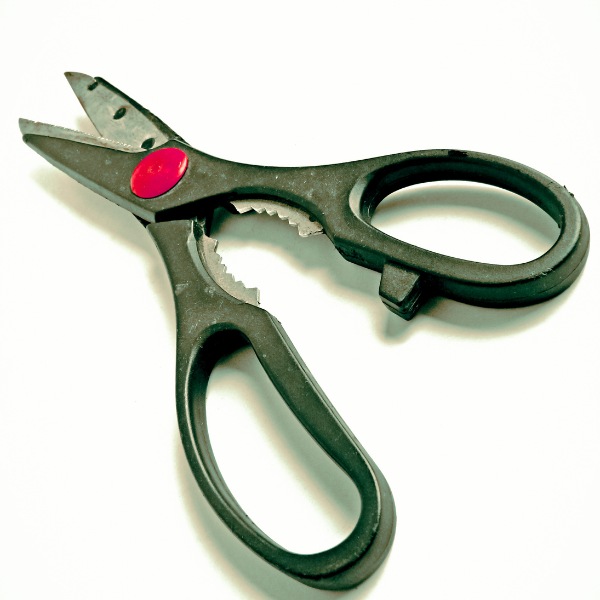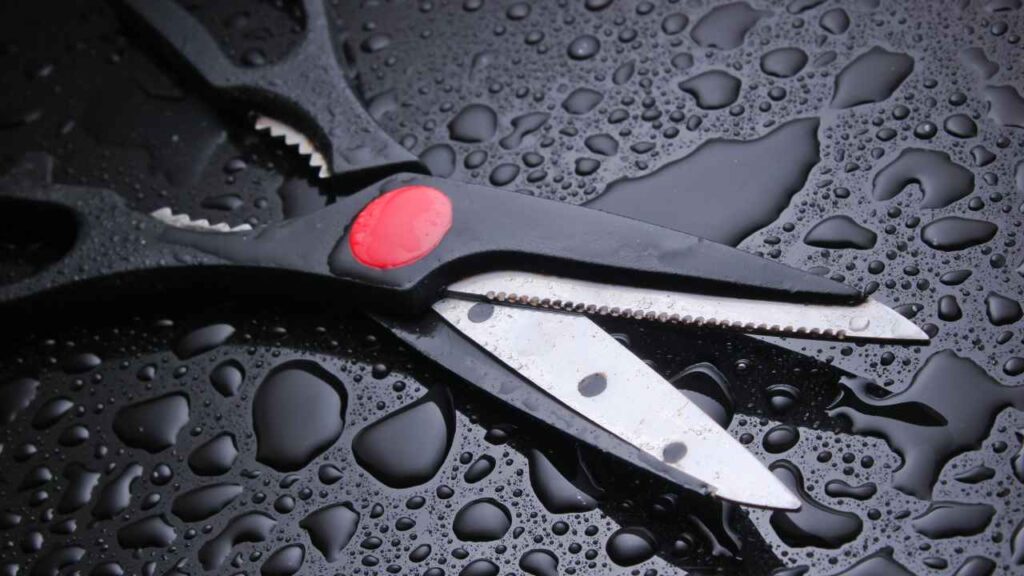Kitchen scissors are one of the most versatile tools in any kitchen. From snipping herbs to cutting meat, they save time and effort during food preparation. However, to keep them in top condition, proper maintenance is essential. Wondering how to maintain kitchen scissors? In this guide, we will cover the do’s and don’ts of kitchen scissors maintenance to ensure they remain sharp, functional, and long-lasting.
How to Maintain Kitchen Scissors?

Maintaining kitchen scissors involves regular cleaning, proper storage, and knowing what to avoid. Follow these 9 essential do’s and don’ts for keeping your kitchen scissors in perfect shape.
Do’s for Kitchen Scissors Maintenance
1. Clean Them After Every Use
Proper cleaning after each use is the first step in maintaining your kitchen scissors. Residue from food or packaging can dull the blades or cause rust over time. Here’s how to clean them effectively:
- Wash the scissors in warm, soapy water.
- Rinse thoroughly to remove any soap residue.
- Dry them immediately with a clean cloth to prevent rust.
2. Sharpen Them Regularly
Keeping the blades sharp is essential for optimal performance. Dull blades not only make cutting difficult but also increase the risk of accidents. Here’s how to sharpen them:
- Use a sharpening stone or specialized scissor sharpener.
- Follow the manufacturer’s instructions for blade maintenance.
- Sharpen them every few months or as needed based on usage.
3. Store Them Properly
Proper storage is crucial for maintaining your kitchen scissors. Carelessly leaving them in a drawer can dull the blades or cause accidents. Follow these storage tips:
- Use a designated storage case or magnetic strip.
- Ensure the blades are covered with a sheath to prevent damage.
- Keep them out of reach of children for safety.
4. Lubricate the Blades
Occasional lubrication keeps the blades moving smoothly and prevents squeaking. Here’s how to do it:
- Use food-safe mineral oil or a light kitchen-safe lubricant.
- Apply a small amount to the hinge and blades.
- Wipe away any excess oil with a clean cloth.
5. Disassemble Them for Deep Cleaning
Some kitchen scissors come with detachable blades, which allow for thorough cleaning. Here’s how to clean them:
- Separate the blades by pulling them apart gently.
- Wash each blade individually and dry them completely.
- Reassemble the scissors carefully, ensuring the blades align properly.
Don’ts for Kitchen Scissors Maintenance

1. Don’t Use Them for Non-Kitchen Tasks
Kitchen scissors are designed specifically for food preparation. Using them for other tasks can dull or damage the blades. For example:
- Avoid cutting hard materials like cardboard or wires.
- Do not use them to open cans or jars.
2. Don’t Leave Them Wet
Moisture is the enemy of metal tools, including kitchen scissors. Leaving them wet can lead to rust and corrosion. To avoid this:
- Always dry the scissors immediately after washing.
- Store them in a dry place away from sinks or dishwashers.
- Consider using a protective oil on the blades for extra rust resistance.
3. Don’t Use Abrasive Materials for Cleaning
Using abrasive materials can scratch the blades and damage the finish. Avoid the following:
- Steel wool or harsh scrubbers.
- Bleach or other corrosive cleaning agents.
Instead, stick to soft sponges and mild dish soap for cleaning.
4. Don’t Ignore Loose Screws
Over time, the screw that holds the blades together may loosen. Ignoring this can make the scissors wobbly and ineffective. To fix this:
- Tighten the screw with a screwdriver when necessary.
- Check the alignment of the blades to ensure they meet correctly.
5. Don’t Cut Frozen Foods Directly
Cutting frozen foods can chip or damage the blades. Instead, thaw frozen items slightly before using your scissors. This prevents unnecessary strain on the blades and extends their lifespan.
Summary: Do’s and Don’ts of Kitchen Scissors Maintenance
| Do’s | Don’ts |
|---|---|
| Clean after every use | Use for non-kitchen tasks |
| Sharpen regularly | Leave them wet |
| Store properly | Use abrasive cleaning materials |
| Lubricate the blades | Ignore loose screws |
| Disassemble for deep cleaning | Cut frozen foods directly |
Where to Buy Kitchen Scissor Maintenance Products
Finding the right tools for maintaining your kitchen scissors is essential for their longevity. You can purchase sharpening stones, knife sharpeners, and lubricating oils from local hardware stores or online marketplaces. Many kitchen specialty stores also carry high-quality maintenance products.
When learning how to maintain kitchen scissors, investing in the right tools ensures you can clean, sharpen, and store your scissors effectively. Look for durable and food-safe options to keep your scissors in the best condition.
Also Read: 9 Reasons Why Kitchen Scissors May Cost More Than Regular Scissors
Conclusion
Proper maintenance of kitchen scissors is crucial for their performance and longevity. By following these 9 do’s and don’ts, you can ensure your scissors remain sharp, functional, and safe to use. Whether it’s regular cleaning, proper storage, or timely sharpening, small steps can make a big difference. Taking care of your kitchen scissors will save you time, effort, and money in the long run.
FAQ’s
How often should I clean my kitchen scissors?
You should clean your kitchen scissors after every use to prevent rust and food residue buildup.
Can I sharpen kitchen scissors at home?
Yes, you can use a sharpening stone or a specialized scissor sharpener to maintain their sharpness.
What is the best way to store kitchen scissors?
Store them in a designated case, on a magnetic strip, or in a drawer with blade covers to prevent damage.
Are kitchen scissors dishwasher-safe?
Most kitchen scissors are not dishwasher-safe due to the high heat and moisture, which can damage the blades.
How do I prevent rust on my kitchen scissors?
Dry them immediately after washing and consider applying a light coating of food-safe oil for extra protection.


2 thoughts on “9 Do’s and Don’ts for Perfect Kitchen Scissors Maintenance”